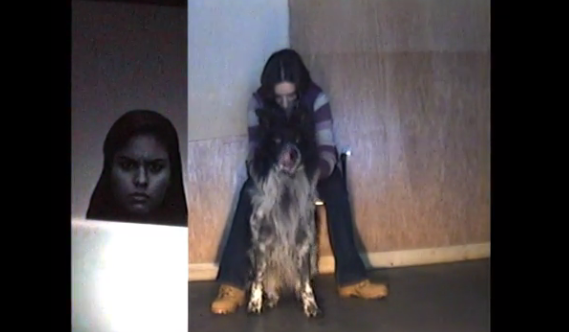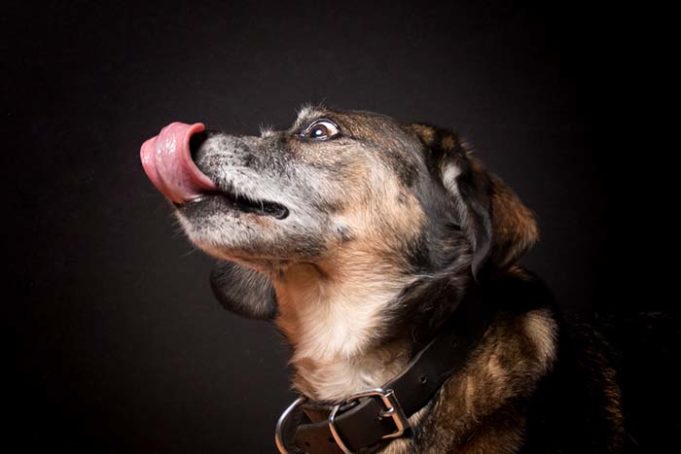Recent scientific findings indicate that a dog licking its mouth is a direct response to what they perceive as anger in humans.
Have you ever looked at a dog and observed that they are licking their mouths uncontrollably? Next time, take note of your expression or the expression the humans nearby. Chances are, someone in the room looks angry.
Most dog lovers perceive this mouth-licking frenzy as adorable, hilarious, and maybe a bit neurotic. There is even an entire subreddit devoted to this on Reddit.com under /r/mlem, and people call this a “mlem.”
Unfortunately, our dogs aren’t trying to be cute when they do this. They are exhibiting apprehension and maybe even fear, because they are reading our angry facial expression and attempting to communicate something about it.
Previously, experts believed that this mouth licking was maybe a way to cope with general stress, or perhaps excitement over certain toys or treats.
But a recent study has shed some new light on the behavior and the reason behind it.
Animal behavior researchers from the University of Sao Paulo, Brazil, conducted the study. They exposed 17 healthy adult dogs to numerous video and audio cues; these cues represented both positive and negative emotions displayed by both humans and dogs.
On two of the screens, dogs saw a combination of happy and angry faces, on both dogs and humans, and they were accompanied by audio recordings.
RELATED: Dogs Communicate to Us Using Facial Expressions
Researchers documented any mouth-licking that occurred and its associated image/sound combination.
As it turns out, only the visual representations had the effect of making a dog lick its mouth, and only the angry human faces produced this reaction.

Photo: Video Still, courtesy of Natalia Albuquerque
Interestingly, the audio of angry human did not have any observed impact effect, and whether the human was male or female made no difference.
Also, dogs tended to lick their mouths more often when they were looking at humans than when they were looking at other dogs.
The dogs exhibited mouth-licking tendencies about twice as often when they were looking at angry human faces than when they were looking at happy human faces.
While many dog lovers can say they are sure our dogs pick up on our emotions, this research lends scientific validity to the notion.
These researchers in this study believe that this mouth licking trait could have developed during the process of dog domestication. They believe it may have specifically evolved in order to allow dogs to communicate better with their new human companions.
Humans rely on visual signals from each other and other creatures much more than many other species, particularly dogs. Dogs rely mostly on scent, but this seems to be a way for dogs to cater to the human need to communicate visually.
In this team’s 2016 study, it was discovered that dogs can accurately match recorded speech patterns with corresponding facial expressions.
So next time you see a dog licking its mouth, pause and figure out what (or who) could be making the pup so nervous.
READ NEXT: The Science and Psychology of Dog Language: Does Your Dog Get You?













